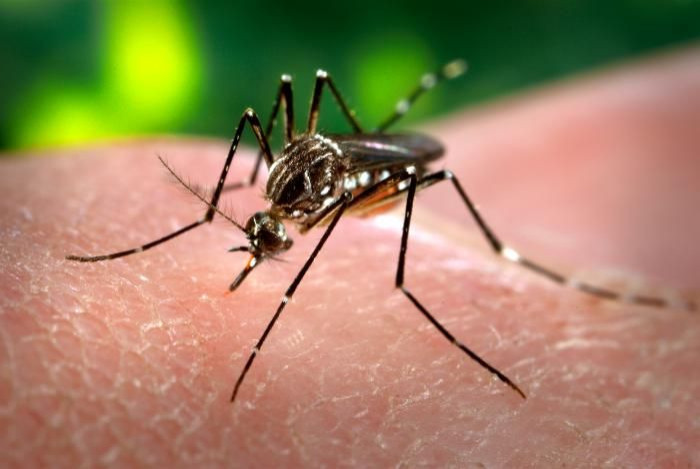GMO Mosquitoes In Florida: Mutant Bugs Could Come As Early As Spring, But There’s No Reason To Freak Out

Health officials in Florida have asked the federal Food and Drug Administration to let them release millions of genetically modified mosquitoes to target several mosquito-borne diseases in the Florida Keys, but many residents there are wary of the eradication program out of fear that the bioengineered bugs could be dangerous. Scientists, however, have maintained that the insects do not pose a threat to humans or the environment, and are actually quite effective at preventing the spread of potentially deadly viruses.
"We're not particularly thrilled with genetically modified anything," one resident of Key West, where the mosquitoes would be let loose, told NPR. Other residents have said they felt like guinea pigs. If approved, it would be the first time the program was used in the U.S. The GMO mosquitoes could be released into the wild as early as this spring, the FDA announced this week.
The mutant bugs were developed more than 10 years ago by British bioengineering company Oxitec, which has maintained that the mosquitoes are both effective and safe. The company has a breeding lab in Marathon in the Florida Keys. Local officials in the Keys have been trying for the FDA’s approval for five years to work with Oxitec.
The male mosquitoes do not survive for long after being released, according to their developer. “We've shown that after trials where we stop releasing, [the GMO mosquito] doesn't last very long in the environment,” Derric Nimmo, Oxitec’s head of mosquito research, told NPR. “So, we've got a very self-limiting, safe, species-specific technology." Also, the male mosquitoes do not bite.
Florida health officials have been particularly concerned over the explosion of a certain kind of tropical mosquito, Aedes aegypti. The bug, which originated in Africa, recently found its way to the southern U.S. and has been blamed for bringing dengue fever and chikungunya, two viruses not typically found in North America, to the Gulf Coast. They can be vectors for yellow fever as well. Last year, dozens of Floridians became infected with the dangerous diseases. “The threat is greater than I’ve seen in my lifetime,” Walter Tabachnick of the Florida Medical Entomological Laboratory told Time last June. “Sooner or later, our mosquitoes will pick it up and transmit it to us. That is the imminent threat.”
Mosquito control has been a constant struggle for Florida health officials. Many of the insects have started exhibiting a resistance to conventional pesticides and sprays, and experts have argued that the GMO mosquitoes are the state’s best option for keeping infections of dengue and chikungunya at a minimum. "We have tried everything from chemical fumigations to parasitic nematodes, dragonflies, everything you could think of," Michael Doyle, director of the Florida Keys Mosquito Control District, told Al Jazeera America in 2013.
The bioengineered mosquitoes, all males, contain a so-called suicide gene that they pass on to their offspring. The gene keeps the females from reproducing, and eventually the population peters out.
Oxitec has already released their bioengineered male mosquitoes in Brazil, the Cayman Islands and Malaysia, with promising results. The experiments saw a 90 percent drop in A. aegypti populations in some areas, according to a study published in 2009. “I think the science is fine, they definitely can kill mosquitoes, but the GMO issue still sticks as something of a thorny issue for the general public,” Phil Lounibos, a Florida entomologist, told the Associated Press.
© Copyright IBTimes 2025. All rights reserved.






















